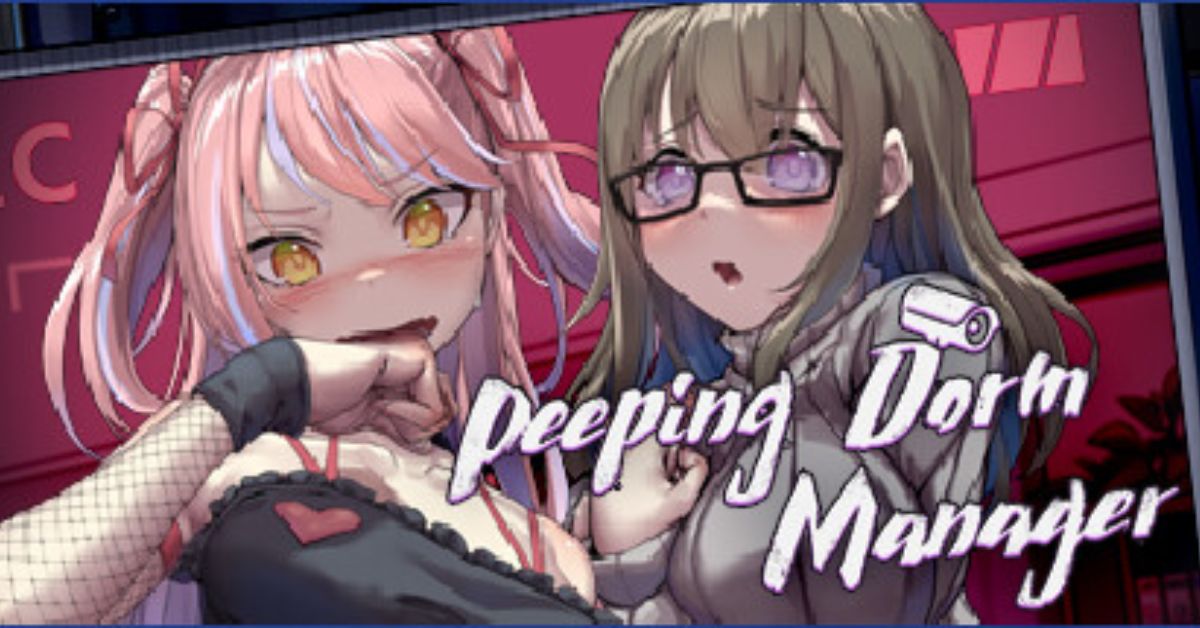Peeping dorm manager how to save life is an exciting experience, filled with new friendships and independence. However, maintaining personal privacy in a shared living environment can be challenging, especially when concerns arise about the intentions of those overseeing the space. The unsettling reality is that some dorm managers may overstep boundaries, creating a need for effective strategies to protect privacy.
Understanding Dorm Management Roles and Boundaries
A dorm manager’s role is to ensure that dorm facilities run smoothly, from addressing maintenance issues to ensuring that residents are following rules. However, a line exists between fulfilling these duties and intruding into residents’ personal spaces.
MUST READ: Elderly Fleur de Lys Motif Fashion: Embracing Vintage Elegance in Modern Style
Expected Duties of a Dorm Manager
A typical dorm manager might handle tasks such as:
- Conducting routine checks in common areas for cleanliness or safety
- Addressing resident concerns about maintenance and security
- Organizing dorm events and promoting a positive environment
While these responsibilities are essential, entering personal rooms without valid reasons or violating resident privacy crosses professional boundaries.
Clear Boundaries for Respectful Dorm Management
Respectful dorm management should be based on transparent policies that protect the privacy of residents. For instance, clear protocols for when a dorm manager may enter a room — such as during emergencies or pre-approved maintenance — help establish trust and set appropriate boundaries.
Recognizing Signs of Privacy Invasion
Understanding the signs of a peeping dorm manager how to save who might be invading privacy is crucial. Sometimes, these behaviors can be subtle but still cause discomfort and mistrust.
Signs of a Dorm Manager Overstepping
Common warning signs may include:
- Unannounced entries into private rooms
- Frequent appearances at odd hours without reason
- Attempts to monitor or question residents about private matters
Recognizing these signs can help residents decide when it’s necessary to take action.
Examples of Inappropriate Behaviors
Examples of inappropriate behaviors include accessing rooms when residents aren’t present, keeping surveillance on residents’ activities without their knowledge, or showing curiosity about residents’ personal lives beyond what’s appropriate.
While uncomfortable, it’s sometimes helpful to understand why such behaviors might occur. This awareness can aid in assessing the best way to handle the situation.
Potential Reasons Behind These Invasions
Some dorm managers may have a misguided sense of authority or responsibility, while others may act out of loneliness, boredom, or even control issues. Recognizing these motivations doesn’t justify the behavior but can guide an approach for addressing it.
Sometimes, psychological factors like a lack of boundaries or respect for privacy contribute to such behavior. Understanding this can help dorm residents gauge whether the issue might be resolved with a respectful confrontation or if further action is necessary.
Legal Protections for Dorm Residents
Various laws exist to protect individuals from privacy violations, even within dorm settings. Knowing your rights can give you the confidence to address these situations legally if needed.
In most regions, privacy laws protect residents from unwarranted entries by dorm managers or staff. These rights can vary but often prohibit dorm managers from entering rooms without permission unless it’s an emergency.
Tenant Rights in Shared Housing
Shared housing rights can vary depending on your location. Generally, you have a right to expect that your personal space will be respected, and any unwarranted invasions can lead to disciplinary or legal actions.
Steps to Take When You Suspect Privacy Invasion
If you sense that your dorm manager is violating your privacy, take a measured approach to confirm your suspicions and prepare evidence.
Evaluating the Situation
First, ensure that you’re accurately interpreting the dorm manager’s actions. Consider whether the behaviors are frequent or unusual enough to cause concern.
Keep a record of incidents, noting dates, times, and descriptions of any unsettling encounters. This documentation is essential if you decide to take further action or seek support.
Confronting a Peeping Dorm Manager
Sometimes, a direct conversation can clarify misunderstandings or stop unwanted behavior. Approach the situation with caution and composure.
How to Approach with Caution
Choose a calm, private moment to discuss your concerns. Clearly explain the incidents that made you uncomfortable, and request that they respect your space and privacy going forward.
Use “I” statements to express your feelings without sounding accusatory. For example, “I feel uncomfortable when…” helps keep the tone respectful and focuses on the issue without assigning blame.
Involving Dorm Authorities or Campus Administration
If direct communication doesn’t resolve the issue, reach out to higher authorities.
Steps to Escalate Concerns
Documented incidents can be presented to dorm authorities or campus administration to address the problem professionally. Request a formal inquiry if the issue persists.
Knowing When to Take Formal Action
If the behavior continues or worsens, involving legal authorities or seeking external help may be necessary. Every student deserves a safe, private living environment.
Knowing Your Legal Rights in Different Regions
Privacy laws differ across states and countries, so understanding local regulations is important.
Regional Laws Affecting Dorm Privacy
Some areas have strict laws about dorm privacy, while others may have broader regulations. Contacting a local legal advisor or consulting online resources can clarify your rights.
Online resources like legal aid websites or campus legal services can help you understand local privacy protections specific to dormitories.
Safety Precautions for Dorm Residents
Taking some proactive steps can further secure your privacy.
Practical Steps for Safeguarding Privacy
Simple precautions, such as using door locks, installing a peeping dorm manager how to save alarm, or adding a “do not disturb” sign, can discourage unwanted entries.
Technology can also help, but it’s essential to use it within legal limits.
Options for Discreet Monitoring
Options like door sensors or small cameras can help monitor your space when you’re not around. Just ensure they’re legally compliant and don’t infringe on others’ privacy.
Handling Emotional and Psychological Effects
Privacy invasions can lead to stress and anxiety, so addressing emotional well-being is important.
You might feel on edge or unable to relax in your space. Talking to friends, family, or a campus counselor can provide support.
Many universities offer resources like counseling or student advocacy offices, which can help process emotions and offer additional support.
How to Support Fellow Dorm Residents Facing Similar Issues
Supporting each other can strengthen the community and create a safer environment.
Creating a network among residents to share experiences or offer advice can be empowering. Open communication also helps everyone feel less alone.
Preventing Future Privacy Invasions in Dorms
Proactive measures can help prevent future issues.
Advocating for Stricter Policies
Work with campus organizations to encourage policies that reinforce privacy standards and hold peeping dorm manager how to save managers accountable.
Promoting training for dorm staff about privacy issues can help prevent future misunderstandings and maintain respectful boundaries.
Conclusion
Living in a dormitory should feel safe and comfortable, without fear of privacy invasion. By understanding your rights, documenting incidents, and communicating your concerns, you can maintain your privacy and foster a supportive community.
FAQs
Can I legally confront my dorm manager if they invade my privacy?
Yes, you can. A respectful approach is often the first step, but you can involve campus authorities if necessary.
What should I do if my dorm manager enters my room without permission?
Document the incident and report it to dorm authorities if it becomes a recurring issue.
Are hidden cameras in dorm rooms legal?
Generally, no. Dorm residents are entitled to privacy, and hidden cameras are often illegal.
How do I report privacy invasion in my dorm?
Most campuses have a dorm authority or student services office where you can file a complaint.
What are some ways to protect my privacy in a dorm?
Use locks, document incidents, and consider discreet monitoring devices if allowed by your region’s laws.





